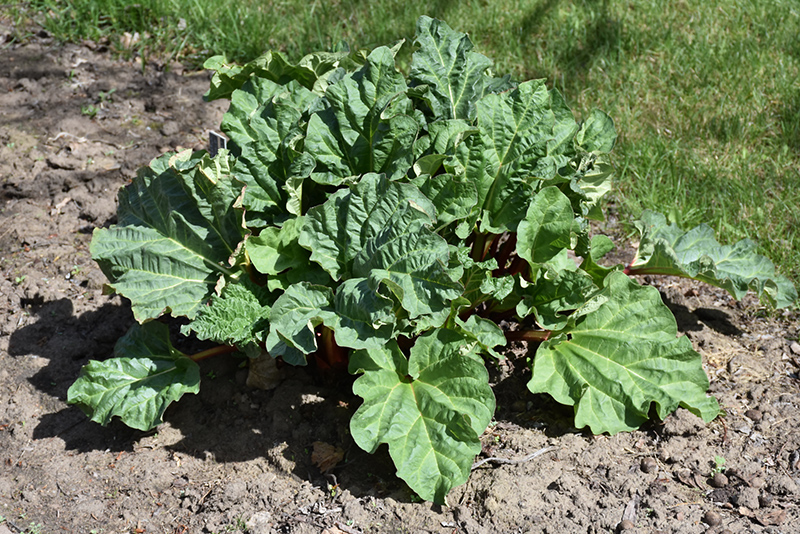Plant Height: 30 inches
Flower Height: 5 feet
Spread: 3 feet
Sunlight:
![]()
![]()
Hardiness Zone: 3a
Other Names: Chipman's Canada Red Rhubarb
Description:
Produces large rich red stems on a hardy plant, stems are excellent for cooking and pies; harvest throughout summer; only stems are edible, other plant parts are poisonous
Edible Qualities
Chipman Red Rhubarb is a perennial that is commonly grown for its edible qualities, although it does have ornamental merits as well. The large red stalks are usually harvested from early to late summer. The stalks have an exceptionally sweet taste and a crisp texture.
The stalks are most often used in the following ways:
- Fresh Eating
- Cooking
- Baking
- Preserves
- Canning
- Sauces
Features & Attributes
Chipman Red Rhubarb features bold spikes of white flowers rising above the foliage from early to mid summer. Its enormous crinkled round leaves remain green in color throughout the season. The red stems are very colorful and add to the overall interest of the plant.
This is an herbaceous perennial with a rigidly upright and towering form. Its wonderfully bold, coarse texture can be very effective in a balanced garden composition. This plant will require occasional maintenance and upkeep, and can be pruned at anytime. Deer don't particularly care for this plant and will usually leave it alone in favor of tastier treats. It has no significant negative characteristics.
Aside from its primary use as an edible, Chipman Red Rhubarb is sutiable for the following landscape applications;
- Vertical Accent
- Mass Planting
- General Garden Use
- Orchard/Edible Landscaping
Planting & Growing
Chipman Red Rhubarb will grow to be about 30 inches tall at maturity extending to 5 feet tall with the flowers, with a spread of 3 feet. It grows at a fast rate, and under ideal conditions can be expected to live for approximately 10 years. As an herbaceous perennial, this plant will usually die back to the crown each winter, and will regrow from the base each spring. Be careful not to disturb the crown in late winter when it may not be readily seen!
This plant is quite ornamental as well as edible, and is as much at home in a landscape or flower garden as it is in a designated edibles garden. It does best in full sun to partial shade. It is quite adaptable, prefering to grow in average to wet conditions, and will even tolerate some standing water. It is not particular as to soil type or pH. It is highly tolerant of urban pollution and will even thrive in inner city environments. This particular variety is an interspecific hybrid. It can be propagated by division; however, as a cultivated variety, be aware that it may be subject to certain restrictions or prohibitions on propagation.
A NetPS Plant Finder tool


